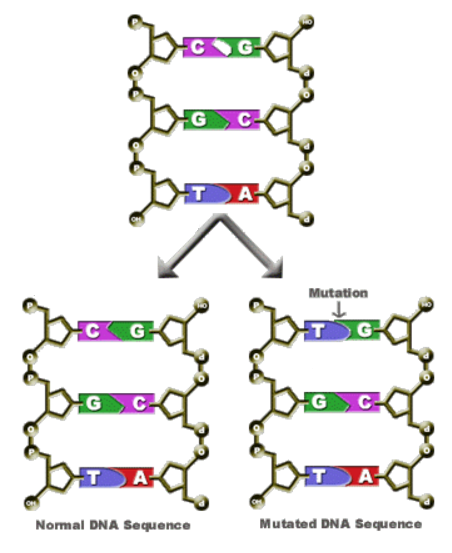The Cause of Mutations
The Effect of Mutations
Mutations and Cancer
Meiosis
Independent Assortment of Homologous Chromosomes, & Genetic Recombination by Crossing Over
The Cause of Mutations
Mutations are a random occurrence during DNA replication and the rate of mutation is influenced by external factors such as UV radiation. There are different types of mutation:
1. Deletion where a nucleotide base is deleted. AGTCA becomes AGCA.
2. Substitution where a nucleotide base is replaced by another. AGTCA becomes AGTCG.
3. Insertion where a nucleotide base is added as extra. AGTCA becomes ATGTCA.

The Effect of Mutations
Since the genetic code is degenerate, it’s possible that a mutation won’t have any effect whatsoever! This represents silent mutations. If 2 different triplet codes translate into the same amino acid, the polypeptide chain will remain unchanged. This of course only applies to substitutions.
Another scenario where a mutation may cause no effect is if it arises in an intron. Since these are removed before mRNA is translated, no mutations would be carried along.
What happens if a base is deleted or added? The genetic code is non-overlapping, so the error cannot simply be overlooked and the following triplets read correctly. The entire subsequent code will be shifted. This is called a frameshift.
Deletion: AGT GGC TTA… –> lose the first G –> ATG GCT TA…
Insertion: AGT GGC TTA… –> insert an A after the first A –> AAG TGG CTT A…
The code is affected significantly!!! In fact, it may be totally ruined. One way this can happen is by a nonsense mutation which by a frameshift causes the code to arrive at a stop codon earlier than it’s supposed to. This will result in a…
